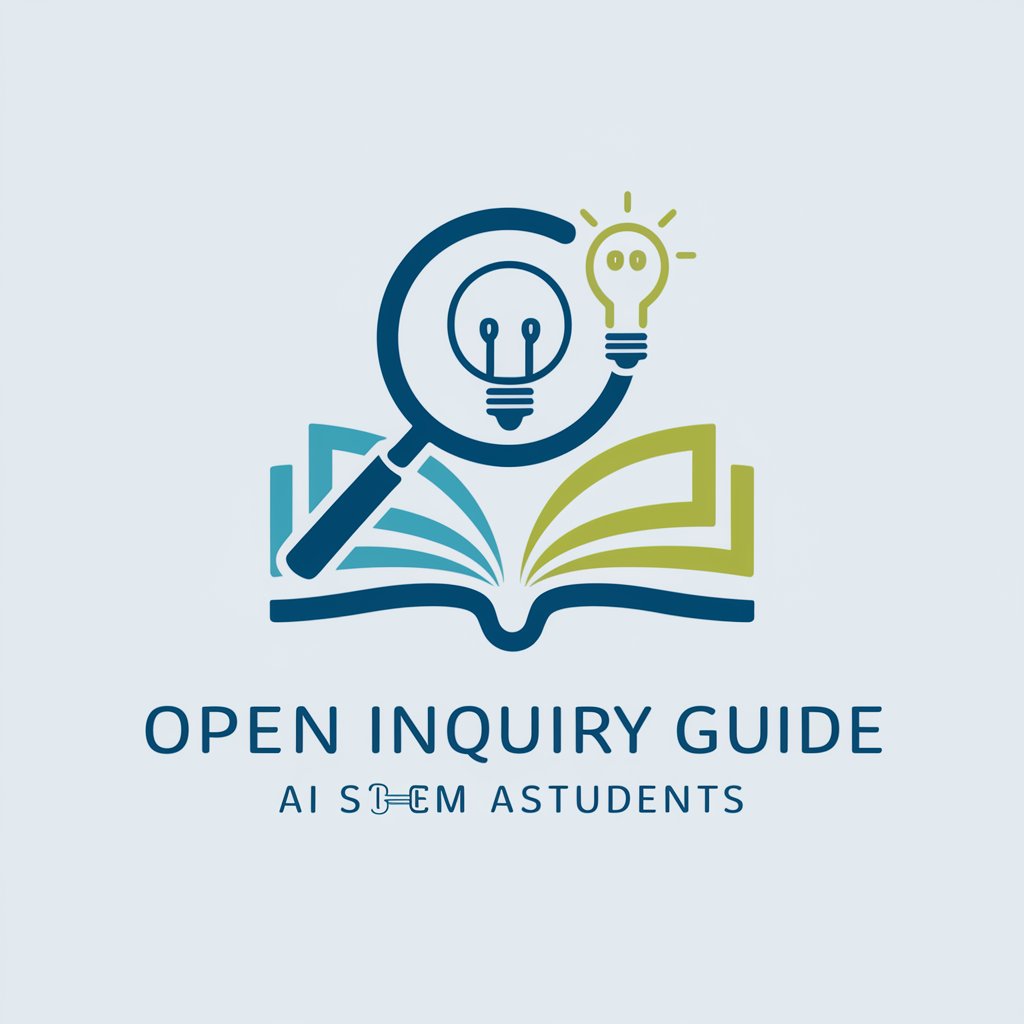
Qualitative Inquiry Guide - Tailored Qualitative Question Generator
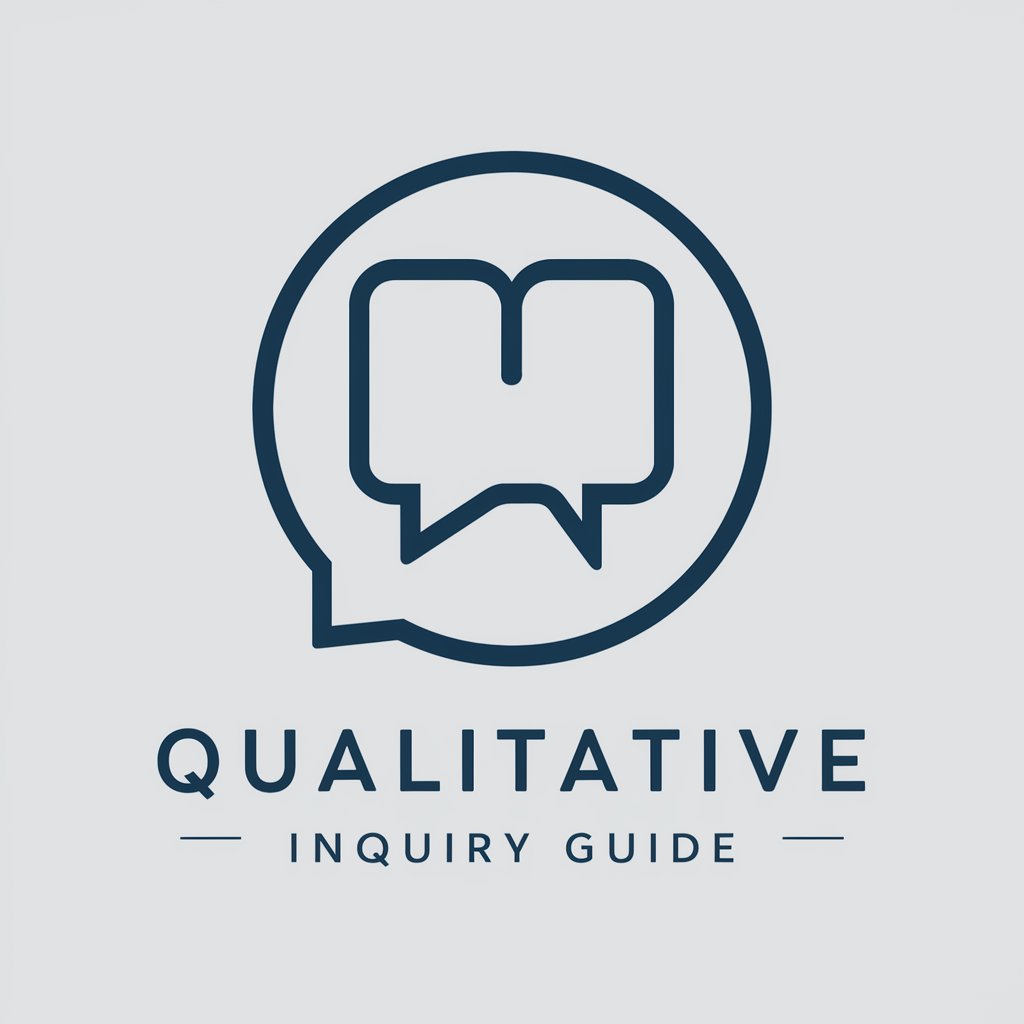
Welcome! Let's delve into your qualitative research needs.
AI-Powered Qualitative Research Assistant
What are your thoughts on...
Can you describe your experience with...
How do you feel about...
What challenges have you encountered in...
Obtener código de inserción
Overview of Qualitative Inquiry Guide
Qualitative Inquiry Guide is a specialized AI tool designed to assist in generating interview and focus group questions for academic qualitative research. Its primary aim is to create open-ended, non-leading, and conversational questions, tailored to align with specific study objectives and the demographics of interviewees. The tool is equipped with a deep understanding of various qualitative research methodologies, enabling it to adjust questions to suit different study contexts. For example, in a study exploring the impact of remote learning on university students, the Qualitative Inquiry Guide can formulate questions that delve into students' personal experiences, emotional responses, and coping strategies, ensuring a rich, nuanced collection of qualitative data. Powered by ChatGPT-4o。

Core Functions of Qualitative Inquiry Guide
Generation of Tailored Interview Questions
Example
For a study on employee satisfaction in remote work settings, the Guide can generate questions like: 'Can you describe a day when you felt particularly satisfied with your remote work setup? What factors contributed to this feeling?'
Scenario
This function is applied in scenarios where the depth of individual experiences and perceptions is crucial for understanding a phenomenon, ensuring that the questions encourage detailed, narrative responses.
Formulation of Non-leading, Open-ended Questions
Example
In exploring public opinions on a new environmental policy, the Guide might suggest: 'How do you perceive the new environmental policy introduced in your community? What aspects of this policy resonate with your personal values or beliefs?'
Scenario
This function is vital in situations where the researcher aims to gather unbiased, authentic insights into a topic without influencing the respondent's answers through the framing of the questions.
Adaptation to Various Qualitative Research Methodologies
Example
In a narrative inquiry exploring personal growth stories among entrepreneurs, the Guide could propose: 'Can you share a pivotal moment in your entrepreneurial journey that significantly shaped your professional outlook?'
Scenario
This function becomes essential when aligning the questioning approach with specific qualitative research methodologies, ensuring that the questions are conducive to the narrative, phenomenological, or grounded theory approaches, among others.
Target User Groups for Qualitative Inquiry Guide
Academic Researchers
This group includes university faculty, postgraduate students, and other scholarly individuals engaged in qualitative research. They benefit from the Guide's ability to generate nuanced, methodology-aligned questions that are essential for thesis work, dissertations, or academic publications.
Market Researchers
Professionals in market research firms or departments benefit from the Guide's services by obtaining in-depth, consumer-focused questions. This helps in understanding consumer behaviors, preferences, and experiences, crucial for developing or improving products and services.

How to Use Qualitative Inquiry Guide
1
Visit yeschat.ai for a free trial without login, also no need for ChatGPT Plus.
2
Specify your research focus and objectives to tailor the generated questions.
3
Select the demographic characteristics of your intended interviewees for more personalized questions.
4
Choose the qualitative research methodology you are using (e.g., ethnography, case study).
5
Review and refine the generated questions to ensure they align with your study's context and objectives.
Prueba otros GPTs avanzados y prácticos
QualiCopterGPT
Revolucionando la Interpretación de Datos Cualitativos con IA
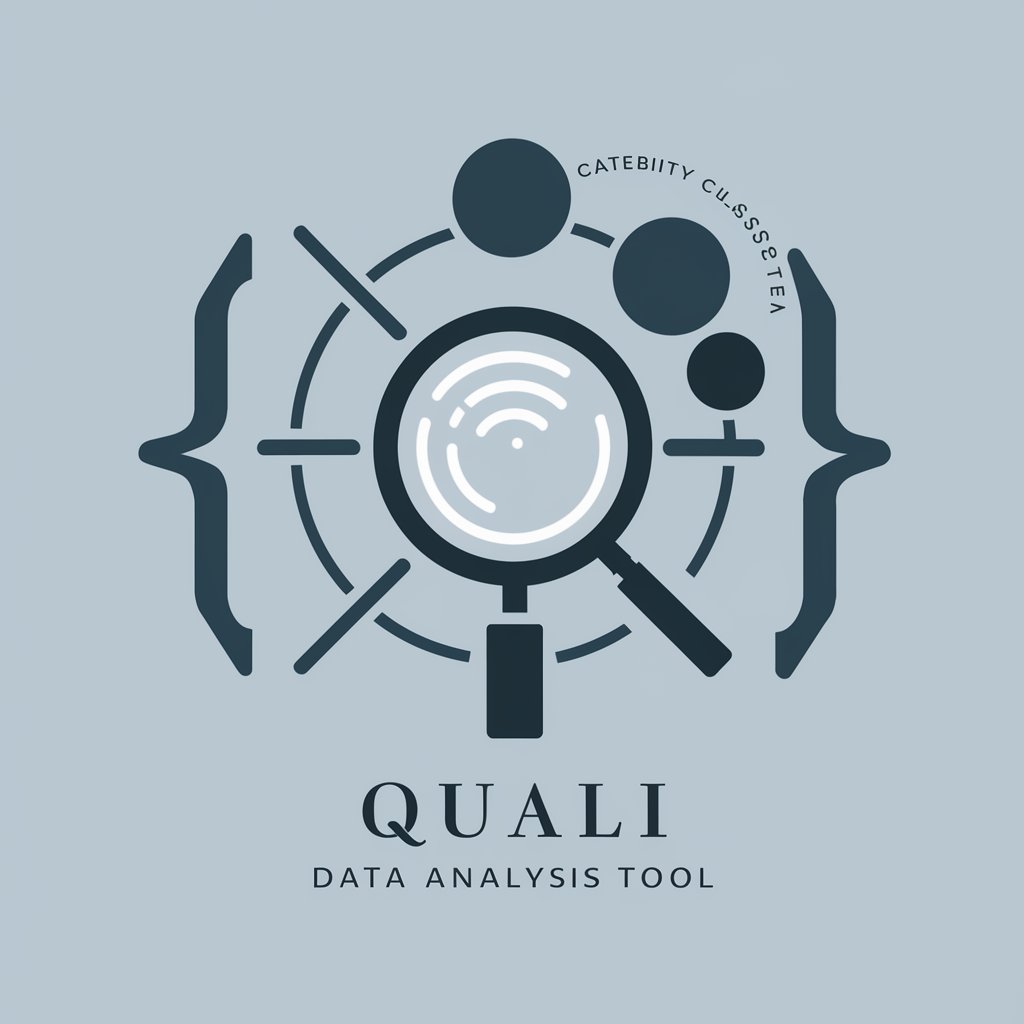
Qualitative Quest
Streamlining Qualitative Research with AI
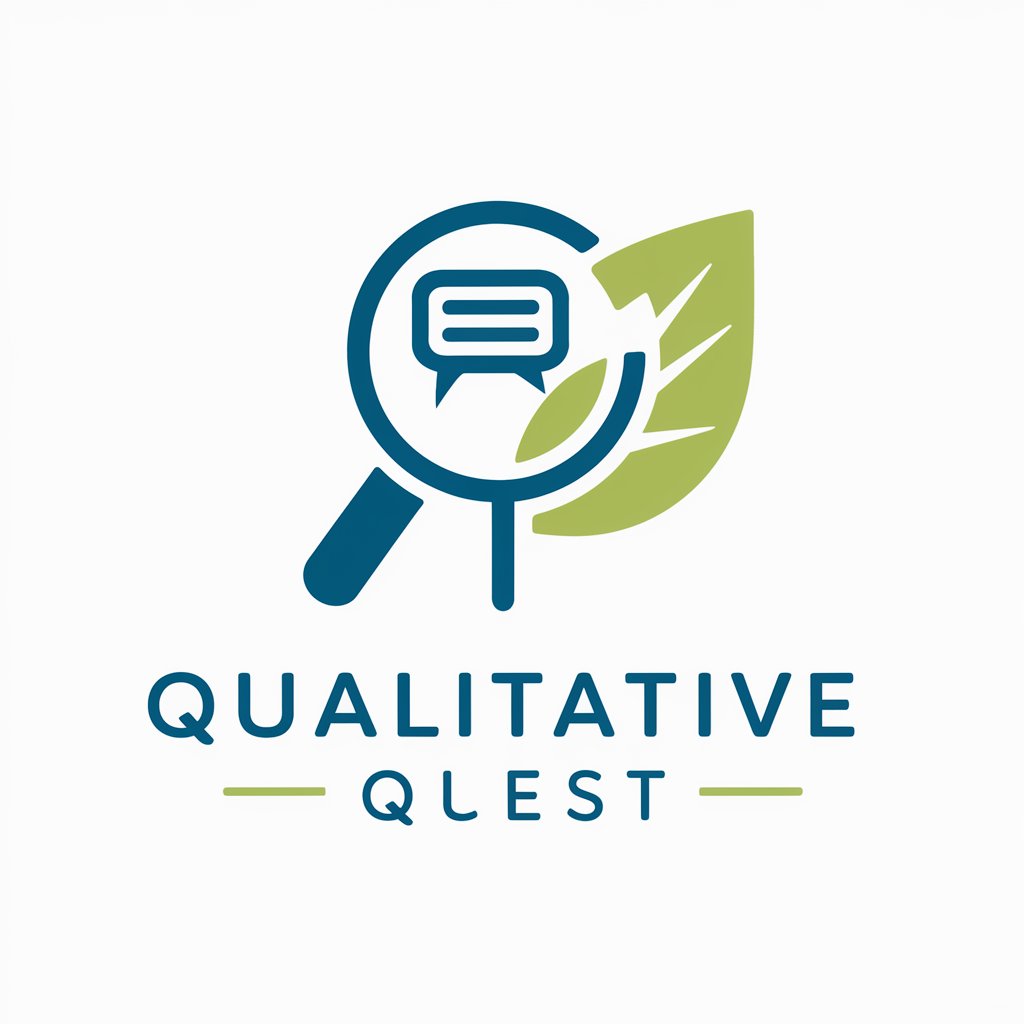
Mixed Methods Design Decision Tool
Simplify your research with AI-powered mixed methods design.
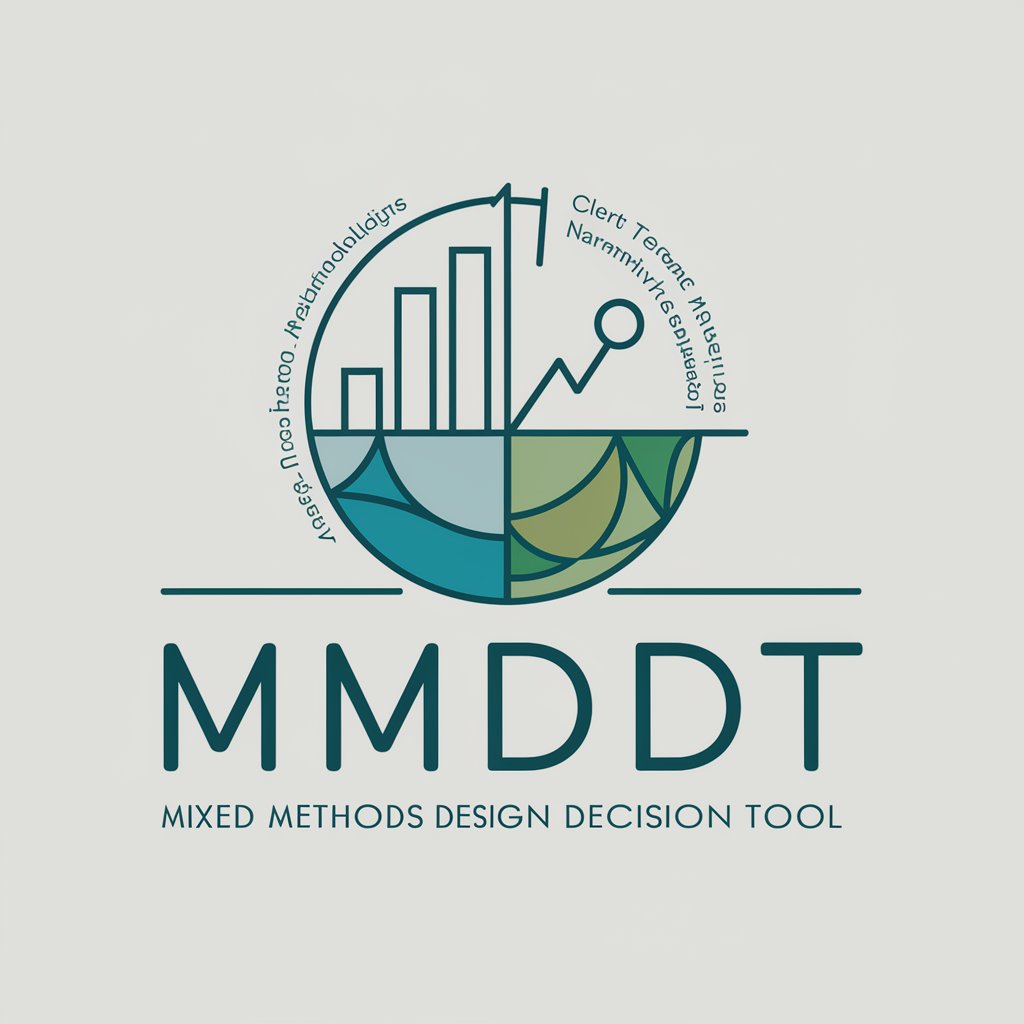
Build Buddy
Empowering Your Home Makeover with AI

Social Media Maven
Elevate Your Social Media Game with AI
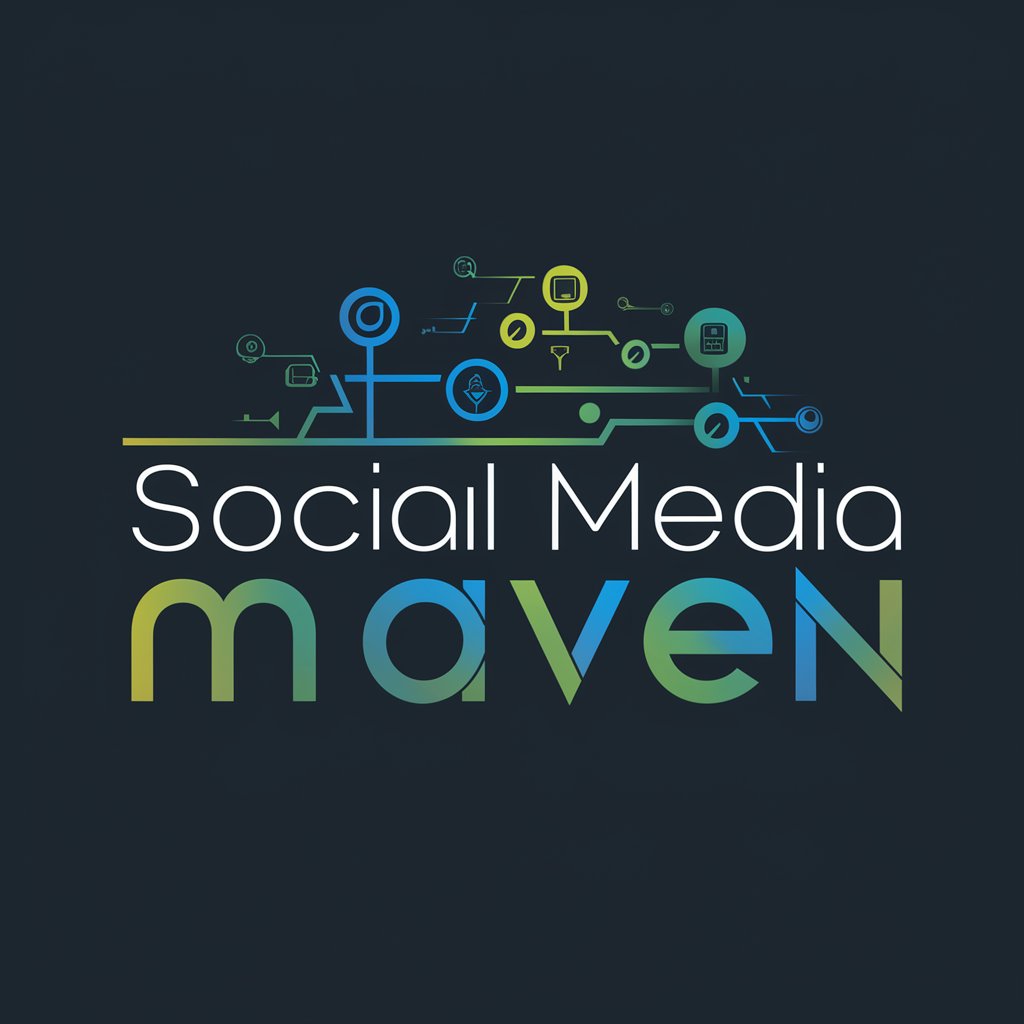
Custom GPT Made Simple
Smart AI, Simplified Solutions
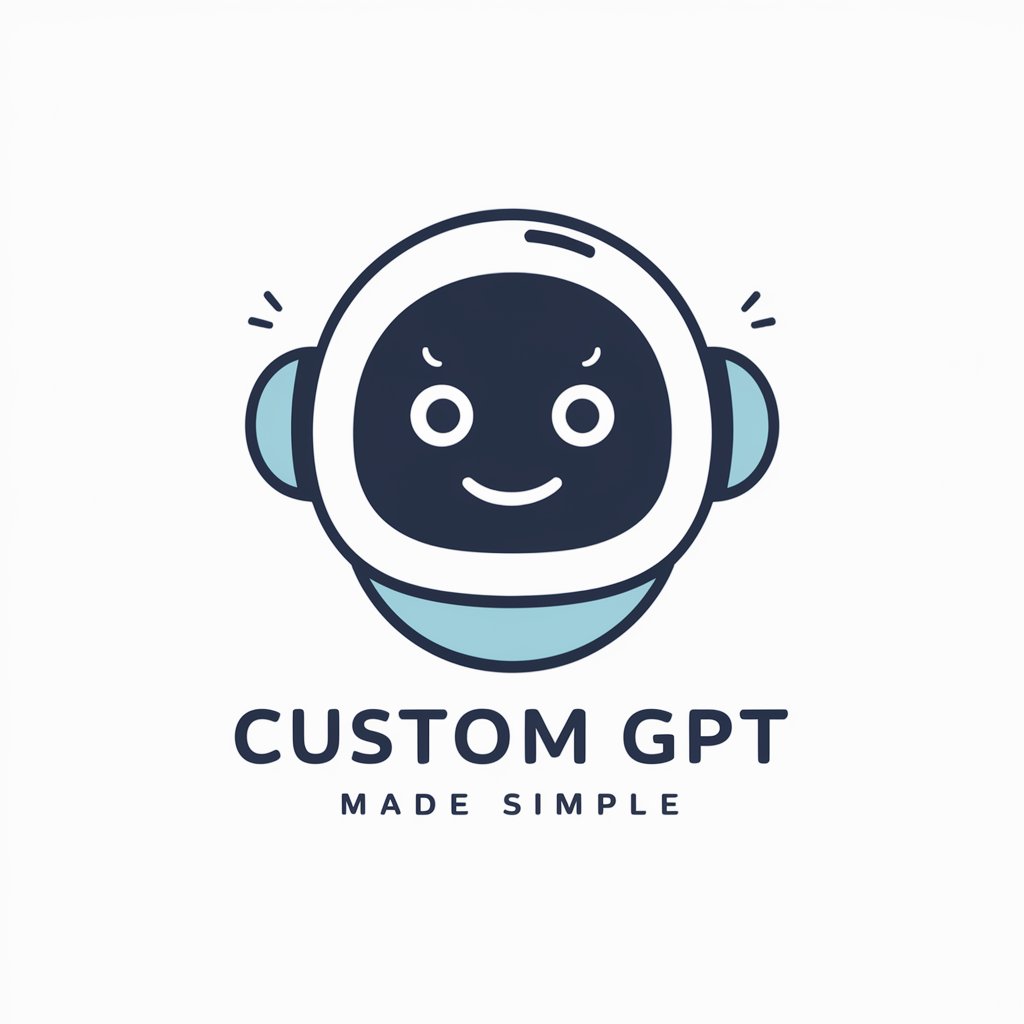
QualiCodeFrame
Streamlining Qualitative Analysis with AI

ESG and Sustainability Strategy Consultant
Mejora de la estrategia ESG impulsada por IA

Dynamic Seasonal Dinner Planner
Seasonal Feasts, Tailored Tastes

XANAなんでもお答え四コマ漫画
Learn about XANA with comics

AI Property Descriptions
Crafting Compelling Property Listings with AI

American Chinese Takeout Order Assistant
Simplify Chinese Takeout with AI-Powered Assistance

Qualitative Inquiry Guide Q&A
What types of research questions are best suited for Qualitative Inquiry Guide?
This tool is ideal for open-ended, exploratory research questions where understanding perceptions, experiences, and motivations is key.
Can this tool generate questions for any demographic?
Yes, it can tailor questions based on various demographic characteristics, ensuring relevance and sensitivity.
Is it suitable for all qualitative research methodologies?
Absolutely, it adjusts questions to fit a wide range of qualitative methodologies, including ethnography, grounded theory, and phenomenology.
How can I ensure the generated questions fit my specific research context?
By providing detailed information about your research objectives and context, the tool can generate more tailored and relevant questions.
Can Qualitative Inquiry Guide help with focus group discussions?
Yes, it can generate questions specifically designed for the dynamics and interaction of focus group discussions.


